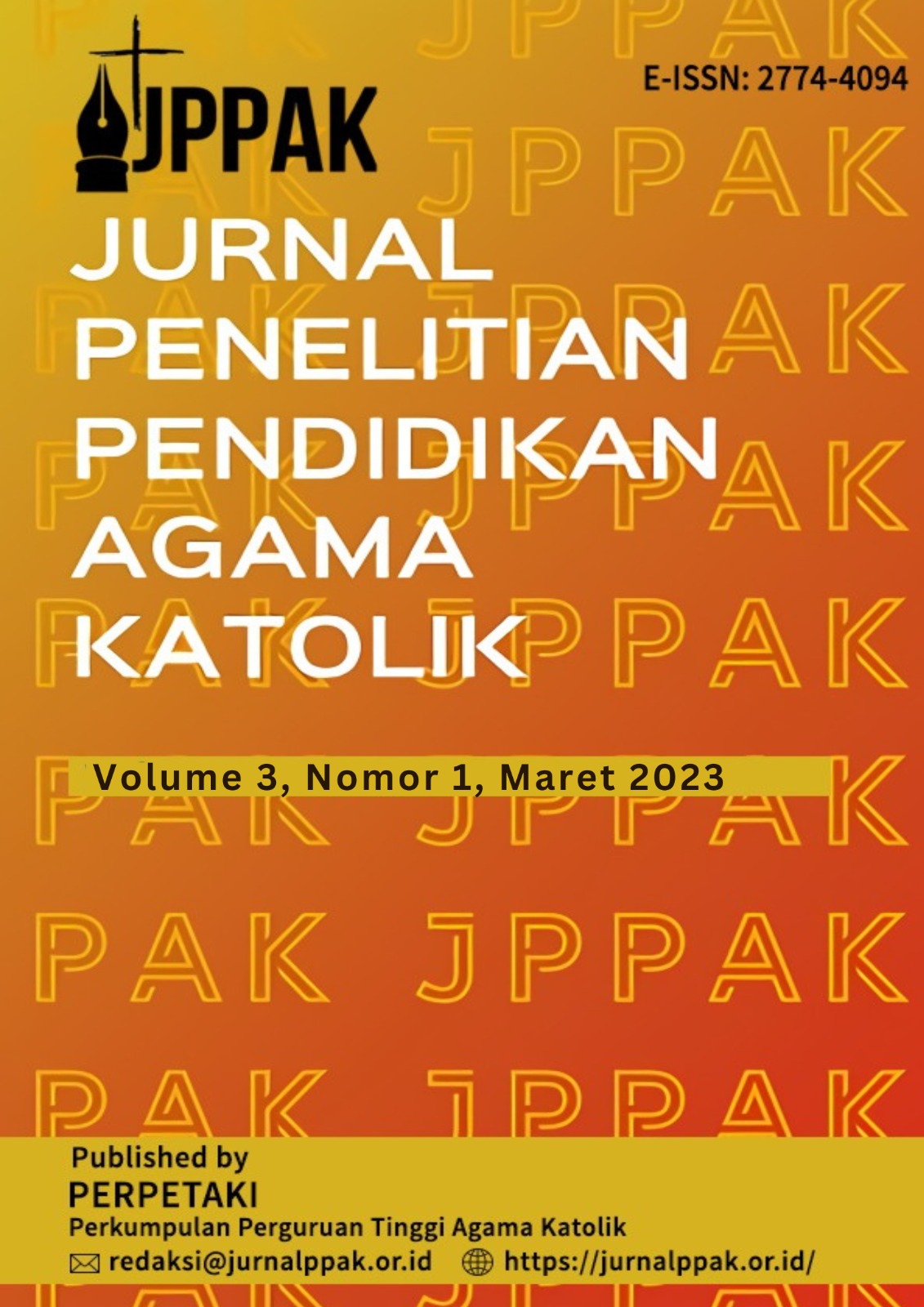Spirituality of Service in the Pastoral Leadership Model Father Janssen, CM
DOI:
https://doi.org/10.52110/jppak.v3i1.57Keywords:
transformative leadership, pastoral leadership, pastoral care, leadership spiritualityAbstract
Spirituality concerns two things: what one does and what one believes others should do. The first part relates to the act of object, and the second relates to the subject of service. This paper aims to describe the spirituality of service in the pastoral leadership model of Fr. Janssen, CM. The method of research used is qualitative, while the method of data gathering is through focus group discussion, interviews, and documentary studies. Focus groups are seen as an appropriate method because discourse and 'shared opinion' will make the validity of the results of this research more secure. Focus groups and shared opinions utilize the perceptions, experiences, and profound relationship between the sources and Fr. Janssen, CM. The researcher interviewed five key informants. Meanwhile, the documentary study deals with documents that support the interview data. Saldaña's coding method is utilized in data analysis. The data will be processed based on six coding steps. The results of this study show that the spirituality of the ministry of Fr. Janssen, CM is reflected in the transformational leadership model. Transformational leadership gives birth to beliefs that are the basis for pastoral ministry. The leadership model of Fr. Janssen, CM's is a set of values. These values are revealed in service and manifested in a definite way of life. This research significantly contributes to the science of ecclesiology in Indonesia and pastoral leadership in general.
Downloads
##submission.downloads##
Submitted
Accepted
Published
How to Cite
Issue
Section
License
Copyright (c) 2023 Fabianus Selatang, Tomas Lastari Hatmoko, Gregorius Kukuh Nugroho

This work is licensed under a Creative Commons Attribution-ShareAlike 4.0 International License.
Copyright Notice and Permissions
Jurnal Penelitian Pendidikan Agama Katolik offers immediate open access to all its content on the principle to make researches freely available to the public, especially to the scholars, to support greater global exchanges of knowledge. This journal encourages all scholarly authors to allow their research openly available, free access and without time restrictions.
All articles published Open Access will be immediately and permanently free for everyone to read and download. Under the CC BY-SA 4.0 license, authors retain ownership of the copyright for their article, however authors grant others permission to use the content of publications in Jurnal Penelitian Pendidikan Agama Katolik (JPPAK) in whole or in part provided that the original work is properly cited. Users (redistributors) of Jurnal Penelitian Pendidikan Agama Katolik (JPPAK) are required to cite the original source by including at least: the full title of the article, the author's or authors' full name(s), JPPAK as the initial source of publication, year of publication and volume number using a propriate citing method.
Copyright encompasses exclusive rights to reproduce and deliver the article in all form and media, including reprints, photographs, microfilms and any other similar reproductions, as well as translations. The reproduction of any part of this journal, its storage in databases and its transmission by any form or media, such as electronic, electrostatic and mechanical copies, photocopies, recordings, magnetic media is prohibited without consent of Jurnal Penelitian Pendidikan Agama Katolik (JPPAK).
Jurnal Penelitian Pendidikan Agama Katolik (JPPAK) is licensed under a Creative Commons Attribution Share-Alike 4.0 International. (CC BY-SA 4.0)
Authors who publish with Jurnal Penelitian Pendidikan Agama Katolik (JPPAK) agree to the following terms:
- Authors retain copyright and grant the journal right of first publication with the work simultaneously licensed under a Creative Commons Attribution Share-Alike 4.0 International (CC BY-SA 4.0) license that allows others to share the work with an acknowledgement of the work's authorship and initial publication in this journal.
- Authors are able to enter into separate, additional contractual arrangements for the non-exclusive distribution of the journal's published version of the work (e.g., post it to an institutional repository or publish it in a book), with an acknowledgement of its initial publication in this journal.
- Authors are permitted and encouraged to post their work online (e.g., in institutional repositories or on their website) after the publication on JPPAK, as long as it not published on other OJS for it will be treated as plagiarism by plagiarism checker apps. It can lead to productive exchanges, as well as earlier and greater citation of published work (See The Effect of Open Access).












